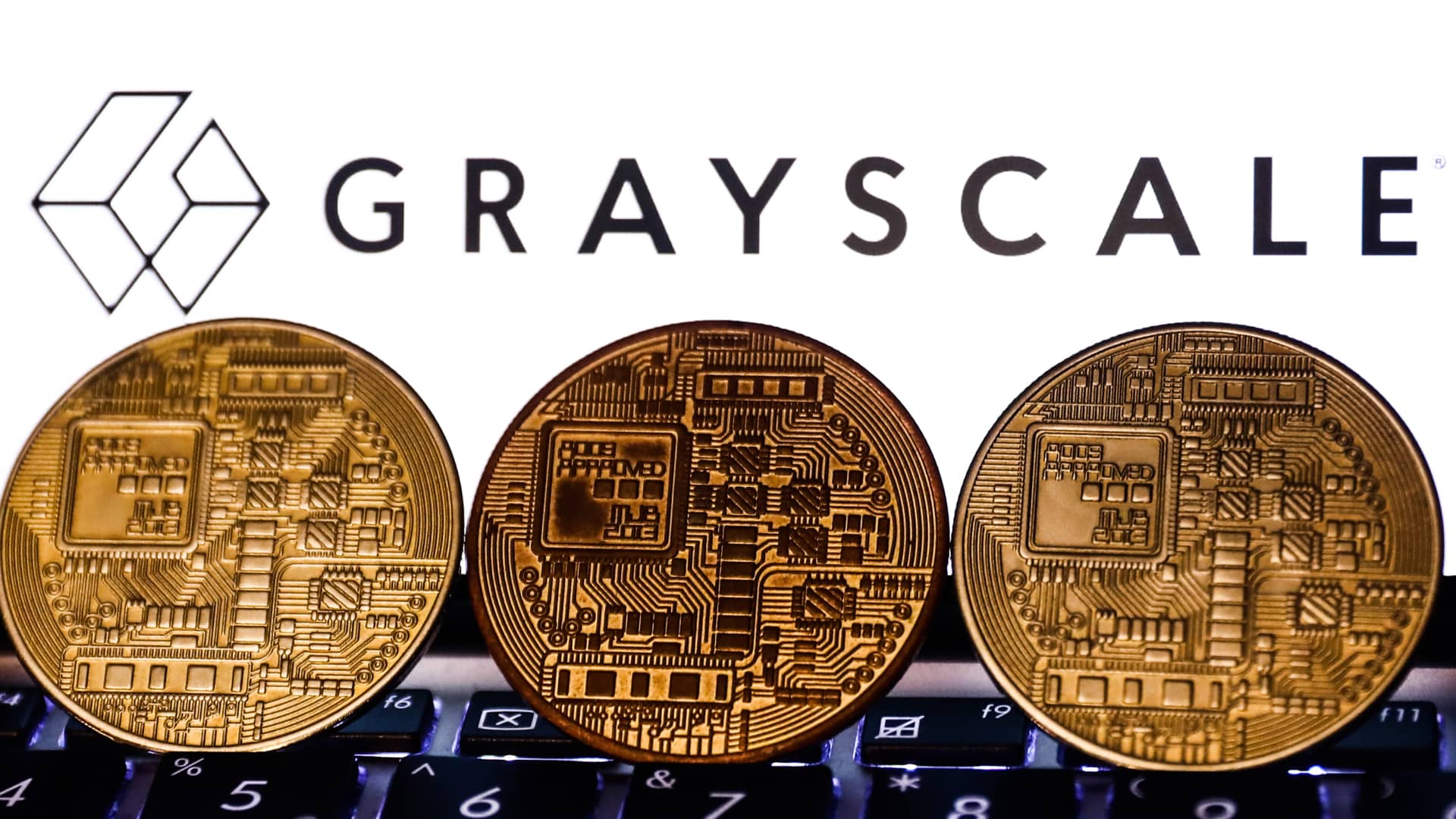
BlackRock’s new push into the battle for a bitcoin exchange-traded fund appears to be giving a boost to one of its potential rivals in the space and creating an arbitrage play for opportunistic traders. The Grayscale Bitcoin Trust (GBTC) , which has long traded at a steep discount to its net asset value, rose 12.8% Friday after BlackRock filed to launch a spot bitcoin ETF. The Grayscale fund continued to surge Tuesday, adding about 14%. While bitcoin has also been climbing , GBTC’s large move has narrowed the discount to about 36% as of Friday, according to The Block , down from about 43% a week prior. Grayscale is in a legal battle with the U.S. Securities and Exchange Commission about converting its GBTC into an ETF. A decision in that case is expected later this year. “I would say that the narrowing of the discount is likely related to the BlackRock filing in part, and also due to increased perception of likelihood of Grayscale winning its lawsuit against the SEC,” said Bryan Armour, the director of passive strategies research for North America at Morningstar. GBTC 5D mountain The Grayscale Bitcoin Trust has rallied more than bitcoin in recent days. Grayscale does not offer a redemption mechanism for GBTC, which would help close the discount gap, but it would with an ETF. If the GBTC were to be converted into an ETF, buying it at a discount now would allow a trader to capture additional upside if the price of bitcoin rises. Offering redemptions outside the ETF process could lead to large outflows that hurt the earning power of the fund for Grayscale, Armour said. The fund has about $16 billion in assets under management and charges a 2% annual fee. The move by BlackRock could be a sign some of Wall Street’s heavy hitters are giving at least quiet support to the crypto industry and to bitcoin ETFs in particular. The proposed BlackRock fund would also use Coinbase as a custodian for cryptocurrency, even though Coinbase was recently sued by the SEC . The regulator has long opposed a spot bitcoin ETF, and Chair Gary Gensler has ramped up enforcement actions against the crypto industry in recent months. But even if Grayscale wins the case, there is some uncertainty about what the next step would be. Some experts have suggested the SEC could respond to the ruling by banning the bitcoin futures ETFs already on the market instead of allowing spot funds to proceed. The regulator could also choose to allow the BlackRock fund but not the Grayscale conversion, given differences in the filings, said Pat Tschosik, senior portfolio strategist at Ned Davis Research. “If BlackRock is getting an ETF, I would want to own the BlackRock ETF. I wouldn’t want to own the Grayscale. I still don’t see the clear path unless you can somehow alter Grayscale to do everything that BlackRock is doing,” Tschosik said. Ned Davis Research recommended GBTC as a buy in January , but closed that trade suggestion in May. The trade had an on-paper gain of 32.3%, according to NDR. Tschosik said the discount tends to widen and narrow based on broader sentiment about the direction of bitcoin. In any case, it seems likely a bitcoin ETF wouldn’t be launched until at least 2024, said William Cai, co-founder of Wilshire Phoenix, an asset management firm focused on crypto. “Actually, getting a bitcoin ETF launched is likely a year and a half away in the best-case scenario,” Cai said. Wilshire Phoenix’s wShares has a pending registration filing for its own bitcoin trust, but that product is not an ETF. Another consideration for investors betting on the discount closing is that GBTC trades over the counter, meaning it is subject to fewer rules and potentially less liquidity than traditional exchanges. “The difference between OTC and an exchange is that it’s a broker-dealer network without a lot of the same protections and regulations that you would get on an exchange. For most people, that really won’t affect trading in GBTC, but it does come with more risk,” Armour said. Grayscale did not respond to CNBC’s request for comment for this story.
